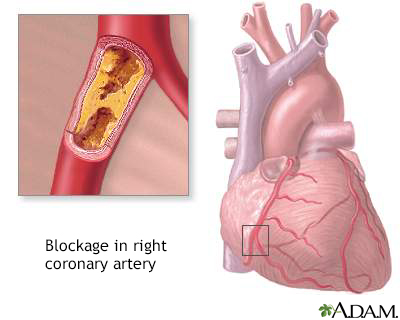Progeria
Hutchinson-Gilford progeria syndrome; HGPS
Progeria is a rare genetic condition that produces rapid aging in children.
Images

I Would Like to Learn About:
Causes
Progeria is a rare condition. It is remarkable because its symptoms strongly resemble normal human aging, but it occurs in young children. In most cases, it is not passed down through families. It is rarely seen in more than one child in a family.
Symptoms
Symptoms include:
- Growth failure during the first year of life
- Narrow, shrunken or wrinkled face
- Baldness
- Loss of eyebrows and eyelashes
- Short stature
- Large head for size of face (macrocephaly)
- Open soft spot of the skull (fontanelle)
- Small jaw (micrognathia)
- Dry, scaly, thin skin
- Limited range of motion
- Teeth - delayed or absent formation
Exams and Tests
Your health care provider will perform a physical exam and order laboratory tests. This may show:
- Insulin resistance
- Skin changes similar to that seen in scleroderma (the connective tissue becomes tough and hardened)
- Generally normal cholesterol and triglyceride levels
Cardiac stress testing may reveal signs of early atherosclerosis of blood vessels.
Genetic testing can detect changes in the gene (LMNA) that causes progeria.
Treatment
There is no specific treatment for progeria. Aspirin and statin medicines may be used to protect against a heart attack or stroke.
Support Groups
More information and support for people with Progeria and their families can be found at:
- Progeria Research Foundation, Inc. -- www.progeriaresearch.org
Outlook (Prognosis)
Progeria causes early death. People with the condition most often only live to their teenage years (average lifespan of 14 years). However, some can live into their early 20s. The cause of death is very often related to the heart or a stroke.
Possible Complications
Complications may include:
- Heart attack (myocardial infarction)
- Stroke
When to Contact a Medical Professional
Contact your provider if your child does not appear to be growing or developing normally.
Related Information
Failure to thriveStroke
Heart attack
References
Gordon LB. Hutchinson-Gilford progeria syndrome (progeria). In: Kliegman RM, St. Geme JW, Blum NJ, Shah SS, Tasker RC, Wilson KM, eds. Nelson Textbook of Pediatrics. 21st ed. Philadelphia, PA: Elsevier; 2020:chap 109.
Jones KL, Jones MC, del Campo M. Senile-like appearance. In: Jones KL, Jones MC, del Campo M, eds. Smith's Recognizable Patterns of Human Malformation. 8th ed. Philadelphia, PA: Elsevier; 2022:174-197.
National Center for Advancing Translational Sciences. Genetic and Rare Diseases Information Center website. Hutchinson-Gilford progeria syndrome. rarediseases.info.nih.gov/diseases/7467/hutchinson-gilford-progeria-syndrome. Updated February 2023. Accessed October 17, 2023.
BACK TO TOPReview Date: 9/18/2023
Reviewed By: Anna C. Edens Hurst, MD, MS, Associate Professor in Medical Genetics, The University of Alabama at Birmingham, Birmingham, AL. Review provided by VeriMed Healthcare Network. Also reviewed by David C. Dugdale, MD, Medical Director, Brenda Conaway, Editorial Director, and the A.D.A.M. Editorial team.

Health Content Provider
06/01/2025
|
A.D.A.M., Inc. is accredited by URAC, for Health Content Provider (www.urac.org). URAC's accreditation program is an independent audit to verify that A.D.A.M. follows rigorous standards of quality and accountability. A.D.A.M. is among the first to achieve this important distinction for online health information and services. Learn more about A.D.A.M.'s editorial policy, editorial process and privacy policy. A.D.A.M. is also a founding member of Hi-Ethics. This site complied with the HONcode standard for trustworthy health information from 1995 to 2022, after which HON (Health On the Net, a not-for-profit organization that promoted transparent and reliable health information online) was discontinued. |
The information provided herein should not be used during any medical emergency or for the diagnosis or treatment of any medical condition. A licensed medical professional should be consulted for diagnosis and treatment of any and all medical conditions. Links to other sites are provided for information only -- they do not constitute endorsements of those other sites. © 1997- 2025 A.D.A.M., a business unit of Ebix, Inc. Any duplication or distribution of the information contained herein is strictly prohibited.
